#Tariffs
Can't Get No Tariff Relief: Tesla, GM, Nissan, FCA, Uber Appeals Denied
Large U.S. companies hoping to side-step the 25 percent tariff on Chinese goods by appealing to the government aren’t having much luck. Since July, the U.S. has imposed the tariff on billions of dollars worth of goods from the People’s Republic, leading to financial fallout for automakers heavily invested in the region.
And it seems no one complained more than General Motors. Tesla, Nissan, Fiat Chrysler, and Uber also sent in official gripes in the hopes of receiving an exemption, only to have the door hit them on the way out.
It's Monday, and Mexican Tariffs Are Back On the Table
After the United States and Mexico signed an agreement to stem the flow of illegal migrants from Central America across their shared border, President Donald Trump’s latest tariff proposal was taken off the table. You could almost hear the sphincters of every global automaker collectively unclench in that moment. Unfortunately, their rectal vacation appears to have been short lived.
“We have fully signed and documented another very important part of the Immigration and Security deal with Mexico, one that the U.S. has been asking about getting for many years. It will be revealed in the not too distant future and will need a vote by Mexico’s legislative body,” Trump tweeted on Monday. “We do not anticipate a problem with the vote but, if for any reason the approval is not forthcoming, tariffs will be reinstated!”
Mexican Tariffs Off the Table Following Border Deal
The United States maintained the threat of tariffs on Mexican goods until Friday night, less than three days before a 5 percent levy was poised to hit incoming products from south of the border. It seems the pressure worked, with the U.S. and Mexico signing a deal late Friday to prevent both tariffs and the northward flow of illegal migrants from Central America.
Automakers are no doubt breathing a sigh of relief.
As Mexico Beefs Up Its Border, Tariffs Still Lurk on Monday
Friday brought a third day of talks aimed at preventing a U.S.-imposed tariff on Mexican goods. Late last month, the White House warned that a 5 percent import levy would hit Mexican goods on June 10th, rising to 10 percent by July and 25 percent by October, if Mexico doesn’t stem the flow of illegal migrants travelling through its country to reach the U.S.
Going into the weekend, the threat still stands. There are, however, signs of progress both from the U.S. and its southern neighbor.
U.S. to GM: Sorry, Pay Your Buick Envision Tax
Pity the poor Buick Envision. As one of the few Chinese-built vehicles sold in America, it earned an unpatriotic stigma upon its arrival. There’s no word on how many UAW workers own one. Meanwhile, the compact crossover launched partway through the 2016 model year with only high-end trims in tow, saddling it with a steep starting price. The entry price has since declined to saner levels.
Just when Buick thought it had righted the Envision ship, the U.S. hiked tariffs on a slew of Chinese goods to 25 percent last July, suddenly making the Envision a less profitable endeavor for the doctor’s car brand. As we learned today, General Motors’ appeal for mercy apparently fell on deaf ears.
Automakers, Already Taking a Hit From Trump's Mexican Tariff Threat, Worry the Pain Has Only Just Begun
The profit-focused appeal of building vehicles in low-cost jurisdictions propelled many automakers to boost manufacturing capacity in America’s southern neighbor — a decision that now haunts them.
After President Donald Trump issued a Thursday statement declaring his administration would levy a 5 percent tariff on all Mexican-made goods starting June 10th, some $17 billion in market value evaporated from top automakers the following day. Ford, General Motors, and Fiat Chrysler all saw their share prices tumble. Should Trump follow through on his promise of an escalating tariff (a threat designed to stem illegal migration into the U.S.), the pain felt by both companies and their customers will be extreme.
Naturally, the industry is pushing back the best it can.
Trump Promises Tariffs on All Mexican Goods Starting June 10th
Just when it seemed the trade climate in the North American region was easing, President Donald Trump launched a new salvo late Thursday, promising a 5 percent levy on all Mexican goods crossing the U.S. border if the country doesn’t stem the flow of illegal migrants.
The tariff would land on all Mexican goods on June 10th, ramping up to 10 percent on July 1 before topping out at 25 percent by October. For automakers and those who sell (and buy) the final product, the prospect of a new import levy is the stuff of nightmares.
Playing Both Sides: How Toyota Is Rolling With the Trade War Punches
While it’s difficult to muster sympathy for giant corporations, the trade war current raging between the United States and China has left many stuck in an industrial limbo. Automakers want a bigger slice of the global market, but putting your eggs in either country’s basket will result in repercussions from the other.
We’re not saying this to promote some kind of commiseration for multinational companies; rather, it’s simply to remind everyone of how the auto industry has to conduct its business. Frequently, carmakers must play both sides. Toyota, already one of the world’s largest automakers, knows this better than anyone, and new documents shed light on some of the cloak-and-dagger aspects of maintaining its high-volume position.
Auto Tariffs Off the Table for 180 Days, Trump Claims
U.S. President Donald Trump pushed the threat of tariffs on imported vehicles to the background on Friday, announcing a 180-day pause as the country negotiates trade agreements with Japan and the European Union.
The delay comes a day ahead of a Saturday deadline imposed by the Commerce Department. In February, the department delivered the findings of an investigation on whether auto imports represent a national security threat to the United States. The report, not seen by the public, issued recommendations to the White House.
Trade War Watch: Truce Ends, Tariffs Up, Talks Resume, Trump Tweets
Following an announcement that trade discussions with China had effectively broken down, President Donald Trump increased tariffs on $200 billion in goods from the country on Friday. The White House also issued an ultimatum, saying Beijing had about a month to reach an agreement before the U.S. enacts another 25-percent duty on $325 billion previously unaffected Chinese imports.
White the trade war has been in full swing for most of Trump’s time in office, the White House had indicated that discussions with China were progressing at the start of May. That changed after the People’s Republic returned a modified trade agreement that removed much of the legal language that would have made it binding while reneging on other aspects U.S. negotiators already assumed were settled. President Trump cited the backtracking as the primary reason for imposing a new round of tariffs.
Fortunately, the U.S. International Trade Commission said the tariff hike would only affect $2.3 billion worth of automotive goods — ranking them 10th on the list overall.
Industry Expects White House to Postpone Auto Tariff Decision 180 Days
Even though the United States plans to impose heftier trade duties on China tomorrow, and vice versa, automakers remain confident that the White House will decide to delay the hiking of other automotive tariffs on national security grounds.
The Commerce Department submitted its Section 232 national security report in February, leaving President Trump until May 18 to act. But manufacturers believe the preferred move will be to postpone the final decision another six months.
Backtrack Blowback: U.S. Makes It Official, Imposes Steep Tariffs on $200 Billion of Chinese Goods
The United States made good on a threat to impose higher tariffs on a new raft of Chinese goods Wednesday, days after the the People’s Republic reportedly backtracked on nearly every element of a draft trade deal hammered out by the two countries.
The 25 percent tariff officially hits $200 billion worth of Chinese goods on Friday, according to a Federal Register notice. As we told you yesterday, U.S. trade representatives reportedly took issue with China’s reluctance to change its laws to protect the intellectual property rights of U.S. companies.
Trade War Watch: New Tariffs Coming Down the Pipe After China Pulls U-turn
The United States could impose a 25 percent import tariff on $200 billion worth of Chinese goods by the end of this week — the result of threats issued by President Donald Trump following a reported about-face on the part of Chinese officials negotiating a new trade deal with the U.S.
At the core of the dispute? Intellectual property rights, sources claim.
Trade War Watch: It's Okay to Feel a Little Sorry for Harley-Davidson
Last summer, the European Union imposed an additional 25-percent import duty on top of the existing 6-percent tariff levied on large motorcycles. Established as a response to the United States’ duties on steel and aluminum, the move crippled Harley-Davidson’s ability to thrive in the European market — a region that accounts for about one-sixth of its global volume.
While much of the media is focused on framing Donald Trump for Harley’s plight, the situation is a little more complicated. The president’s tariffs did indeed spur the EU’s retaliatory fees, but it was Europe that decided to place its crosshairs upon the iconically American motorcycle brand.
How Seriously Should We Take Trump's Mexican Auto Tariff Threat?
On Thursday, President Donald Trump threatened to impose tariffs on cars entering the United States from Mexico if the nation doesn’t assist Washington in dealing with the migrant situation at its southern border. It’s a rather bold ultimatum, coming hot on the heels of claims that the White House was seriously considering closing the border entirely if Mexico could not curtail the flow of illegal immigrants and drugs heading north.
It’s an interesting situation, especially considering both outcomes would upend the automotive industry. But Trump argues that the growing reliance on Mexican manufacturing and proliferation of illegal immigrants has already hurt the United States badly. A contentious stance, for sure, but these are issues in need of thorough discussion. Gallup polls repeatedly peg immigration as one of the issues voters care most about — along with healthcare and the economy.
However, we only care about those things tangentially. It’s all about the cars for us.



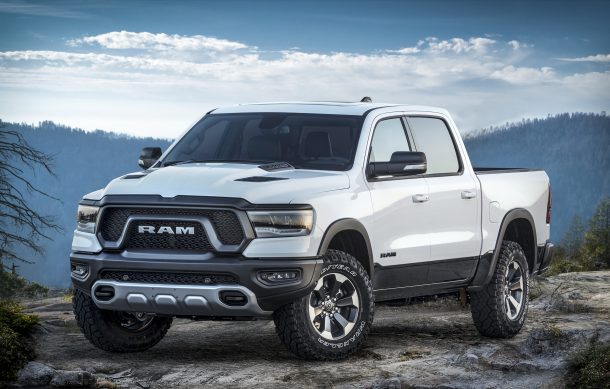
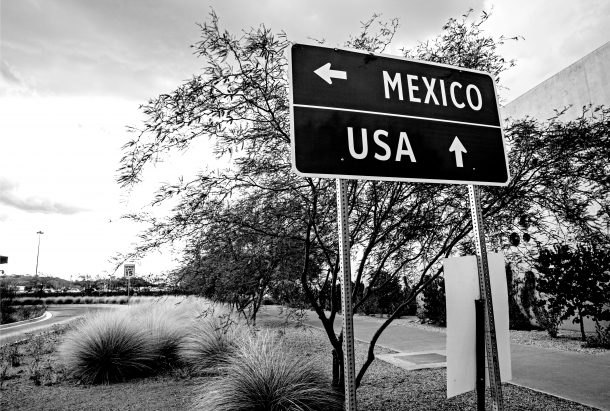


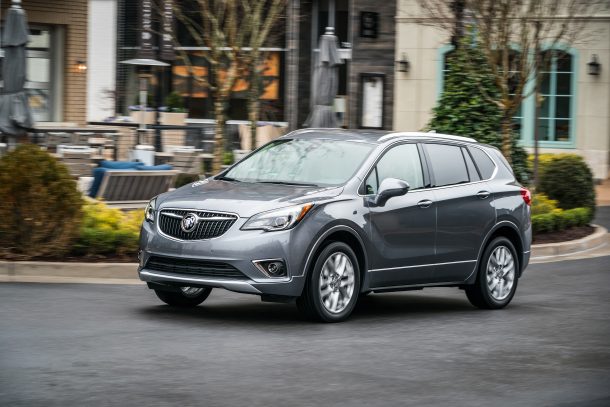
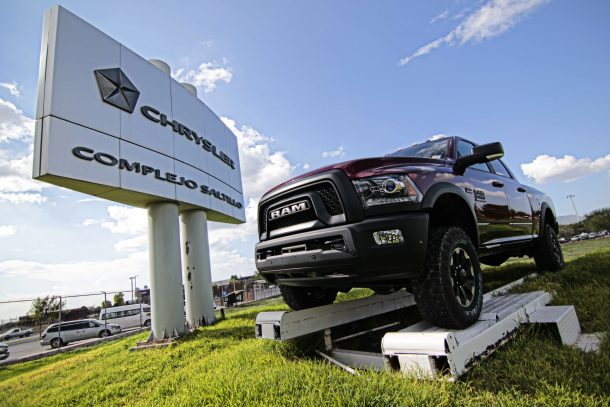
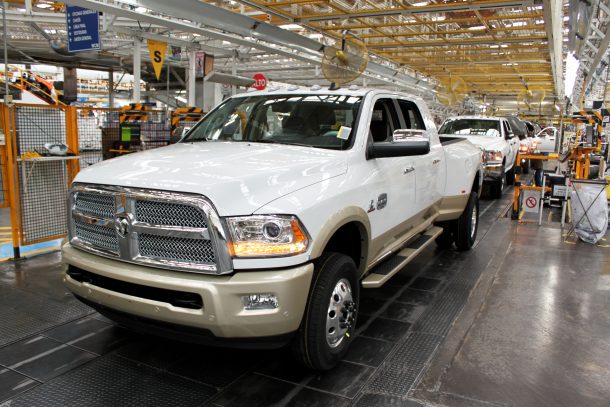






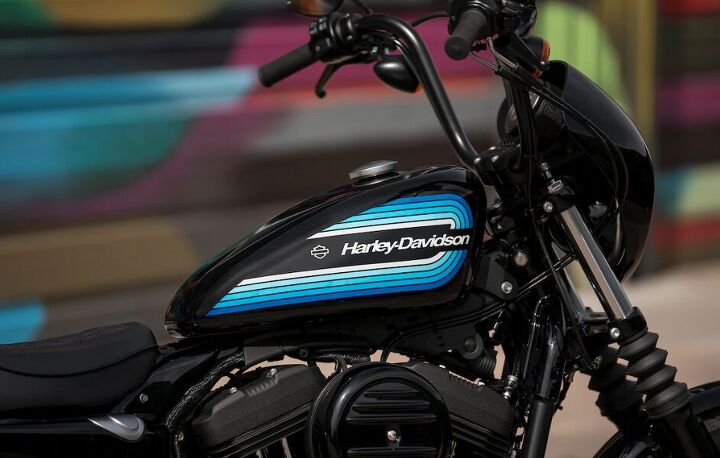













Recent Comments